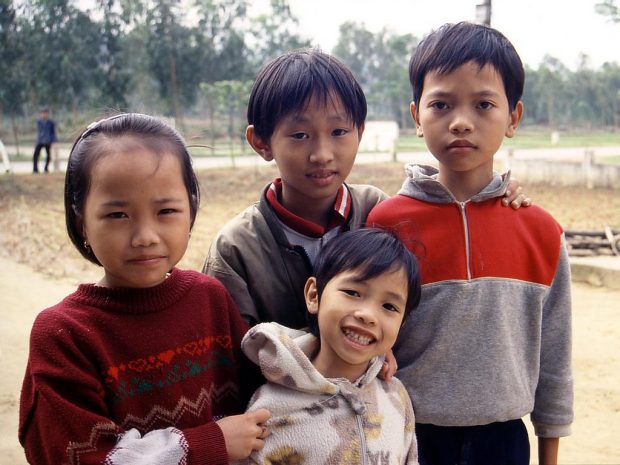Kindergartens in Vietnam
Children in Vietnam often go to kindergartens from 2 to 6, although many of them go to daycare centers under 12 months, if their mothers work. Kindergartens are divided into private and public ones.
According to the statistics in 2018, there were 15,394 public kindergartens across Vietnam, increasing from 13,734 in 2013. There is no exact number of private kindergartens. Public kindergartens are run by the Ministry of Education and Training, while the private ones are run by individuals or families.
There are differences between cities and provinces. In big cities, the number of private kindergartens grows rapidly in recent years, partly because of an influx of immigrants. While in provinces, most of the children go to public preschools.
Generally, tuition for public kindergartens is cheap. In cities, each class has as many as 60 children, who are cared by only 2 or 3 teachers. Higher-income parents are more likely to choose to enroll their children in private kindergartens despite of high average annual tuition. One of the most commonly cited factors is smaller class size that ensures greater individual attention than in public ones.
Nowadays, parents have the option of registering specialized classes for their children at kindergartens. There are classes for English, art, music, physical education, math, and alphabet. Notably, more and more kids study English at kindergartens. In fact, studies say that early childhood is a critical period for language development as children are very receptive to learning a second language, so many parents, especially in big cities, want their children to learn English early. As a result, many of the children at four or five develop language skills and become confident in speaking English.
A big problem is that schools have been facing a shortage of qualified teachers, according to the Ministry of Education and Training. Stress at work and low salaries have been blamed for the lack of Vietnamese teachers. Many private and high-quality kindergartens also face a shortage of foreign teachers for English classes. It is not easy to hire foreign teachers having both official education training and child psycho-physiology certificates.
The government of Vietnam is paying more attention to students at kindergarten and childhood education. Moreover, it makes funding schools a priority and improves the quality of education. It has been looking at ways to add facilities, increase wages for kindergarten teachers, and improve resources and standards in preschools. The government wants to improve child care so that it meets international preschool education norms towards international integration.
By Bui Then

























































